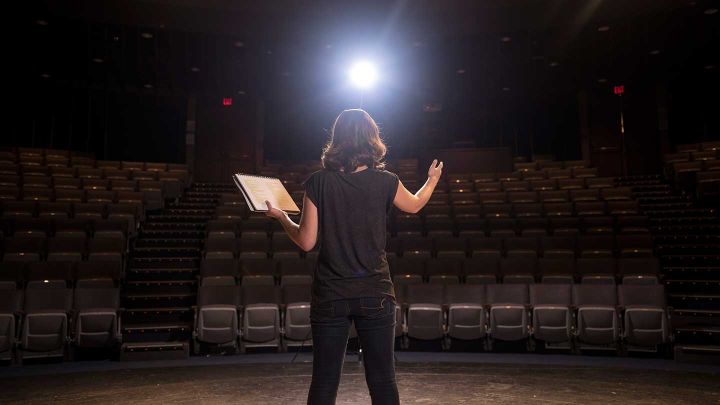Four of the five committees chartered by the provost’s office to discuss the future of the arts at Calvin submitted their reports on Dec. 15.
These committees studied messaging, physical spaces, fundraising campaigns and a possible arts administrative unit. They offered immediate recommendations as well as longer-term ideas for the provost’s office to consider. The fifth committee, which is looking at the arts’ place in Calvin’s curriculum, will submit its report in March.
Dean Elizabeth Vander Lei said that the work of these committees allows the college to be more “nimble” in supporting arts programs. Future work can be done with a “tight focus” that people across the campus agree upon.
The messaging committee’s report emphasizes the need to “act immediately and decisively” to counter the “false assumptions” that many students and alumni currently have about the arts at Calvin. To do this, it suggests creating an “Arts Alive” campaign to connect promotion of all the arts events happening this spring, a video introduction to the arts at Calvin, a spring arts festival and an arts recognition event.
The physical spaces committee highlighted work that is already in process, such as remodeling the lower Gezon lobby and the Lab Theatre lobby. It also suggested several future projects, like upgrading sound and lighting in both theaters, improving carpet and furniture in the art department and adding art displays to the Hiemenga courtyard.
“People get excited when they see their surroundings change,” said Vander Lei. When furniture and student art were added to the lower Gezon lobby, students began using the space. It is one of the first “tangible” results of Calvin’s effort to reinvigorate the arts.
The capital campaign committee’s primary finding was that more first-year arts scholarships should be added in order to increase student recruitment. Other schools like Hope offer generous music scholarships, and the committee suggested the provost’s office conduct a study to determine how best to compete for these students.
The fourth committee studied the possibility of an administrative unit dedicated to the arts. It recommend that the current arts council work with Vander Lei to develop more specific and integrated oversight for Calvin’s arts programs.
“The most important outcome [of this work], I think, is the relationships that have been built across college divisions and a shared sense of purpose,” said Vander Lei. “We’re demonstrating that we ourselves can do the kind of collaboration that we want to characterize the arts, and that’s encouraging.”
Vander Lei added that many of the committee members have described their work as “energizing and encouraging.”
“That’s a sign that we’re on the right road.”









